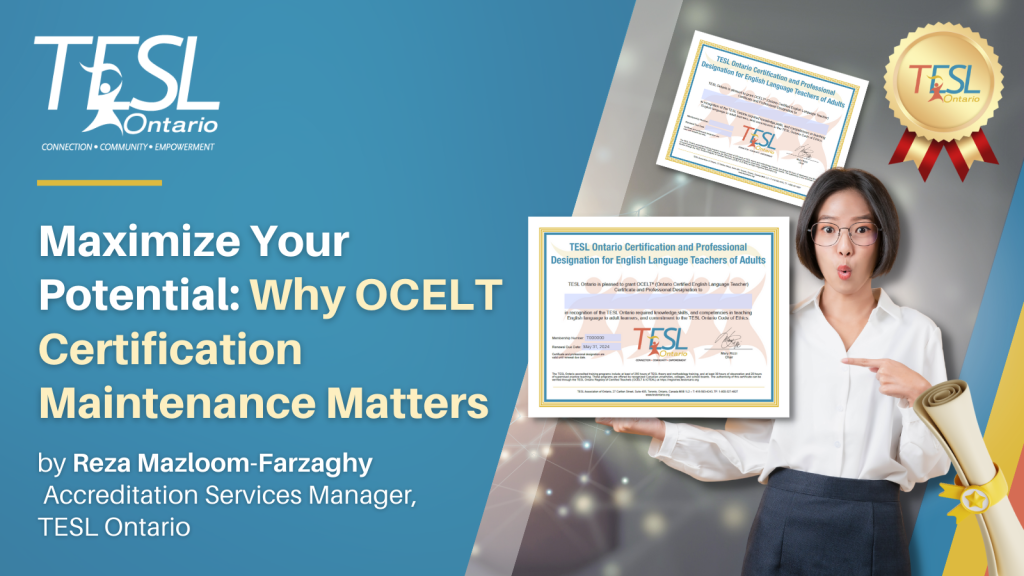This year’s TESL Ontario Annual Conference will be taking place November 13-15, 2024. The call for presentation proposals is now open for this year’s event: Navigating New Routes in Language Education. The TESL Ontario Annual Conference provides an exceptional opportunity to share your expertise and research to a diverse and engaged audience, fostering professional growth and visibility in your field. It allows you to contribute to the collective knowledge of our community, receive valuable feedback, and engage in stimulating discussions that can inspire new ideas and collaborations.
Participating in the TESL Ontario Annual Conference as a presenter enhances your communication and presentation skills, builds your network with peers and industry leaders, and positions you as a thought leader. The experience not only boosts your confidence but also opens doors to future opportunities, both academically and professionally.
Interested presenters can choose from a variety of session types to deliver live or pre-recorded, including Papers, Presentations, Publisher’s Presentations and Technology Presentations.
The benefits of presenting at the TESL Ontario Annual Conference are numerous:
1 – Presenters receive a one-day complimentary registration for the day of their presentation
2 – Presenters receive a certificate for five (5) hours of Professional Development for their one-hour session
3 – The opportunity to hone virtual presentation skills
4 – The opportunity to expand one’s personal learning network within our field
5 – The opportunity to share knowledge and engage in inspiring conversation
New presenters will have access to a comprehensive and self-directed training package with the support of a dedicate conference team of organizers, session moderators and web admin. Returning presenters will not be require to complete training unless they wish to do so. A brief “What’s New in 2024” reference video will also be available for repeat presenters.
Interested presenters can visit https://teslontario.formstack.com/forms/callforpresentations2024 for more information about the conference, this year’s theme, presentation requirements and to submit their proposals. All proposals should be received by June 10, 2024.
We can’t wait to see you in November!










